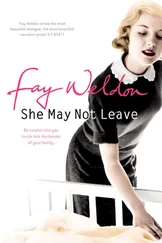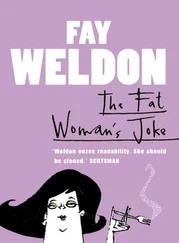
Cover Page
Title Page Auto Da Fay Fay Weldon
Pre-name
Franklin Fay
The House That Once Was
Fay Franklin
Second Chances
Patterns
Missing Mothers
Cranmer Square
Via Panama
Margaret, Jane’nFay
Convent Girl
Sin and Guilt
Convalescent
Jane and Fay
The Doctor’s Daughters
Wartime
Playground Narrative
A Burning Bush in Hagley Park
Granddaughter
Home Truths and Great Writers
Family Scandal
The Inheritors
Stepdaughter
Schoolgirl
Chicken-Licken
Refugee
Immigrant
Frozen
Servant Girl
Scholarship Girl
Sister-in-law
Rejected
Among the Dispossessed
Orphan
Student
Men with Feet of Gold
In Another Part of Town
A Sentimental Education
Dreams, Ghosts, Places and Terrors
Love, Money and Other Practicalities
The Real World
Lost Girl
Security Risk
Pregnant
Flight
Fay Davies
New Mothers
Haunted
Out of the Frying-pan
Davies/Bateman
Mrs Bateman
Sent Out
Running Away
Fay Bateman
Hopeless in Love
Work Among the Poets
Juggling
Stepping Over the Cook
Doubt and Destiny
Love at First Sight
At Sea
Moving In
A Career is Born
Change
Clutter
Making Good
Fay Weldon
Fay Weldon
From the reviews for Auto Da Fay:
By the same author
Copyright
About the Publisher
I long for a day of judgment when the plot lines of our lives will be neatly tied, and all puzzles explained, and the meaning of events made clear. We take to fiction, I suppose, because no such thing is going to happen, and at least on the printed page we can observe beginnings, middles and ends, and can find out where morality resides. Real life tends to fade out into entropy, all loose ends, and grief for what should have been, could have been, had things turned out just a little differently. Yet probably the life that was lived was the best that could be done: even, to the outsider, better than could have been expected.
This is an attempt to narrate a real life, my own, and to find the pattern within it. The pattern can’t really be completed, of course, until death, when autobiography so rudely turns into biography, but so far as I can do it, I will.
There seems to be a general overall pattern in most lives, that nothing happens, and nothing happens, and then all of a sudden everything happens. You are swimming out to sea, you’re rocking gently in the wake of a wave, all seems tranquil, but water is mounting beneath you, unstoppable, and suddenly you are the wave, breaking and crashing, sucking back into a maelstrom – and then all is tranquil again.
When I was three months in the womb, in a period no doubt of nothing happening and nothing happening except a general warm all-pervasive dullness, an earthquake in Napier, New Zealand, had my mother Margaret running from the house with my two-year-old sister Jane in her arms. The year was 1931. My mother was twenty-three. Our house stayed upright but the grammar school opposite and the hospital down the road, both made of brick and not New Zealand’s usual wood, collapsed. Everything else seemed made of matchsticks. My mother, in search of my father, one of the town’s few doctors, ran past the grammar school and saw arms and legs sticking out of the rubble. But with a small child in your arms, what can you do for others? Everyone else was running too, some one way, some another: the ground was still shaking and changing and whether you were running into more danger or less how could you be sure? But still she ran.
All the water swept out of Napier harbour that day and never came back: the town had to be entirely rebuilt, and became the Art Deco gem it is today.
Dr Frank Birkinshaw, my father, was too busy with the injured to take care of his young wife. He was a man of great charm, tall, well built, blue-eyed, adventurous and impetuous – at the time in his mid-thirties. Margaret was small, dark, fastidious and very, very pretty, with high cheekbones, big brown eyes and a gentle manner. The Birkinshaws were recent immigrants from England. He was from the North, had joined the army when he was sixteen, been invalided out of the trenches, and qualified as a doctor in the face of many obstacles. She was a bohemian from the softer South, an intellectual by birth, breeding, and temperament: her father a novelist, her mother a musician. She kept the company of Evelyn Waugh and his gang of friends, she was at home in literary soirées and in fashionable nightclubs, not in this harsh pioneering land. But she was also clever, determined and tough and failing to find my father, she left word for him, and by nightfall she and Jane had taken refuge in the tented city that went up overnight on the hills above Napier. The town was uninhabitable.
The stars had never seemed so bright, my mother said, as if nature were showing off its beauty to make amends for the terrible thing it had just done. But the lice, she added, were very active. I have met others who mention these two things about the tented town, the brightness of the stars and the liveliness of the lice. And they smile and seem to prefer not to go into detail. Perhaps licentiousness reigned: it would not be surprising; the ordinary answer to death is to create new life, and the normal inhibitions of small town life had been suddenly and drastically removed.
My mother was rescued from her makeshift tent by a sheep farmer and his wife, grateful patients of my father. They took her and little Jane to their homestead, where there was, my mother said, mutton for breakfast, mutton for dinner and mutton for tea. She helped around the farm, and cooked and ate the mutton with gratitude. I inherit this gift from her, I daresay, in that I do what is under my nose to be done, without too much lamentation.
Although the ground shook and trembled for weeks after the initial quake, meals continued to be served in the cookhouse, which had a tall brick chimney. My mother lived in fear of it collapsing and killing everyone inside, but no one would listen to her. She was dismissed as an alarmist. She was right, of course. There was another bad shock. ‘I felt the trembling begin beneath my feet. I snatched Jane from her cot on the veranda and ran for open space but I was flung to the ground by what seemed a wave of dry land. I saw the hedge flick first one way and then the other. And then I watched the chimney fall into the cookhouse and destroy it. I always knew it would. I had already seen it happen.’ As it fell out, dinner had finished just minutes before, and no one was killed, though for a time meals had to be eaten in the open air.
I have not inherited my mother’s gift for prophecy: true, as you grow older you may begin to know what is going to happen next, but this can be put down to experience, not second sight. It is not a happy gift to have: because of it, for one thing, my mother never learned to drive, seeing too many scenarios of disaster ahead for comfort, too conscious of what might be going on over the brow of the hill. My father was very different: he was over-confident: he saw to the pleasures of the here-and-now and let the future go hang. I was born more like him than her, in this respect. She prophesied that it would land us both in trouble, and she was right.
Читать дальше













